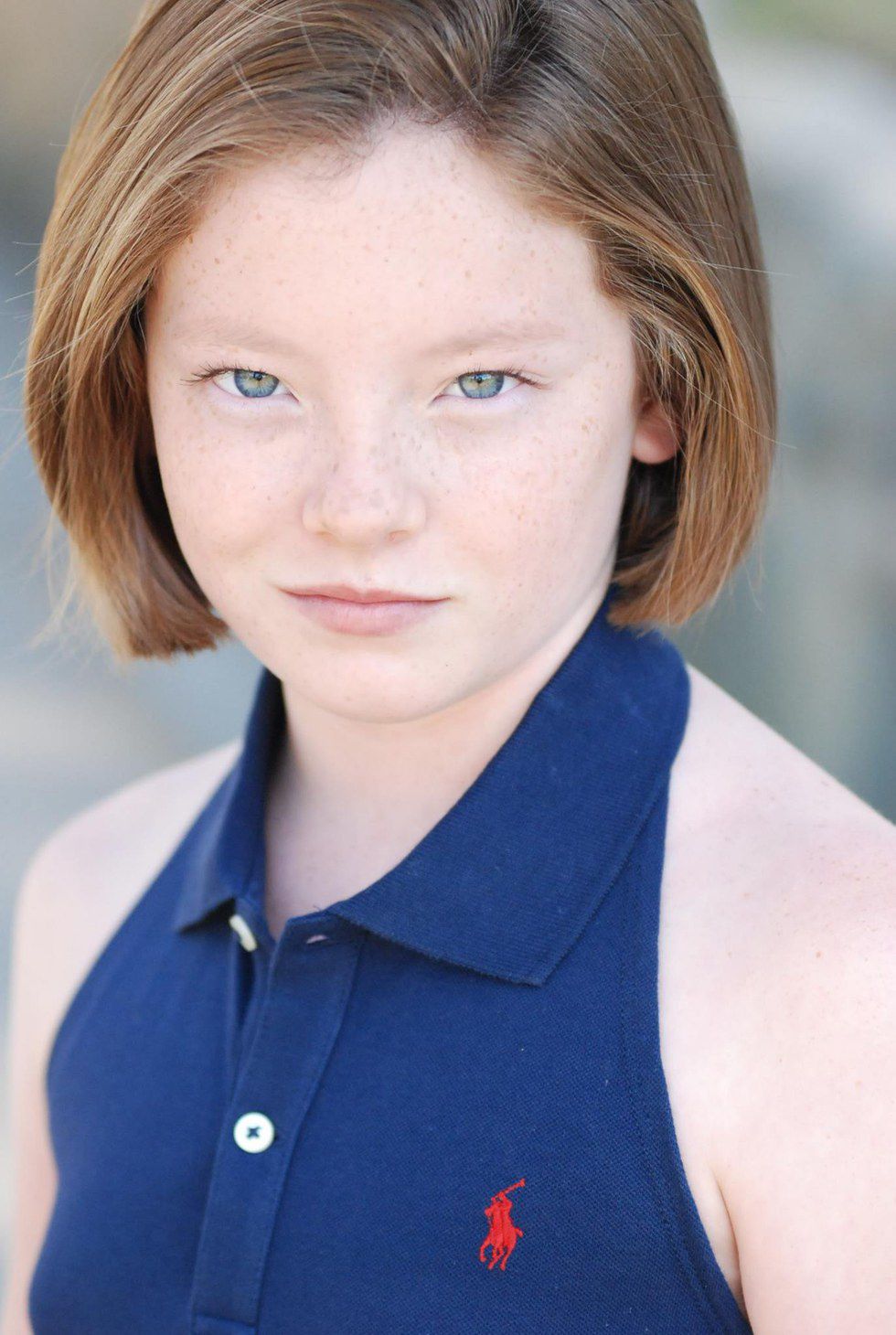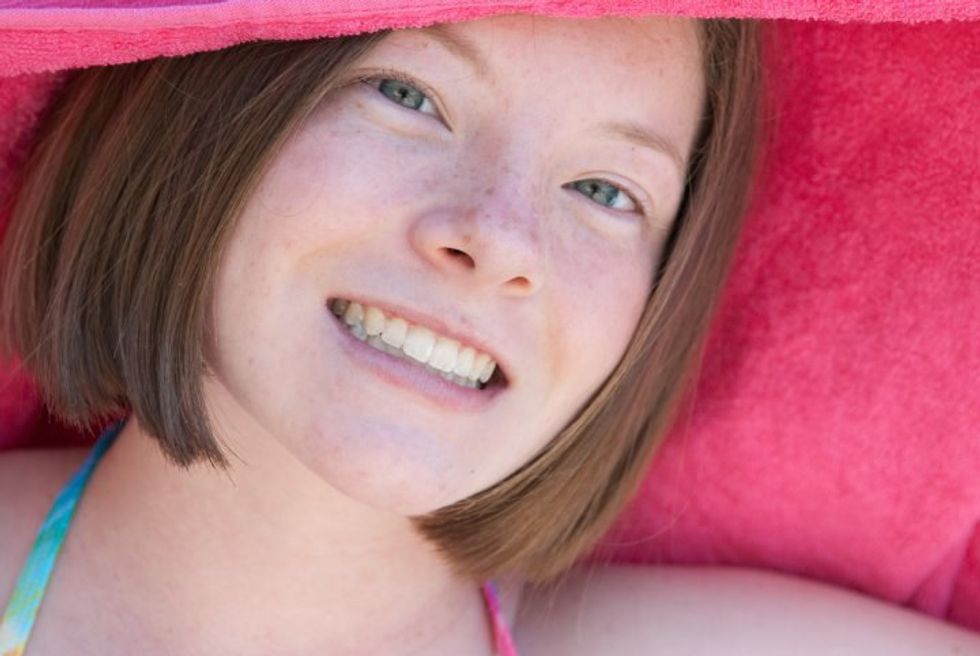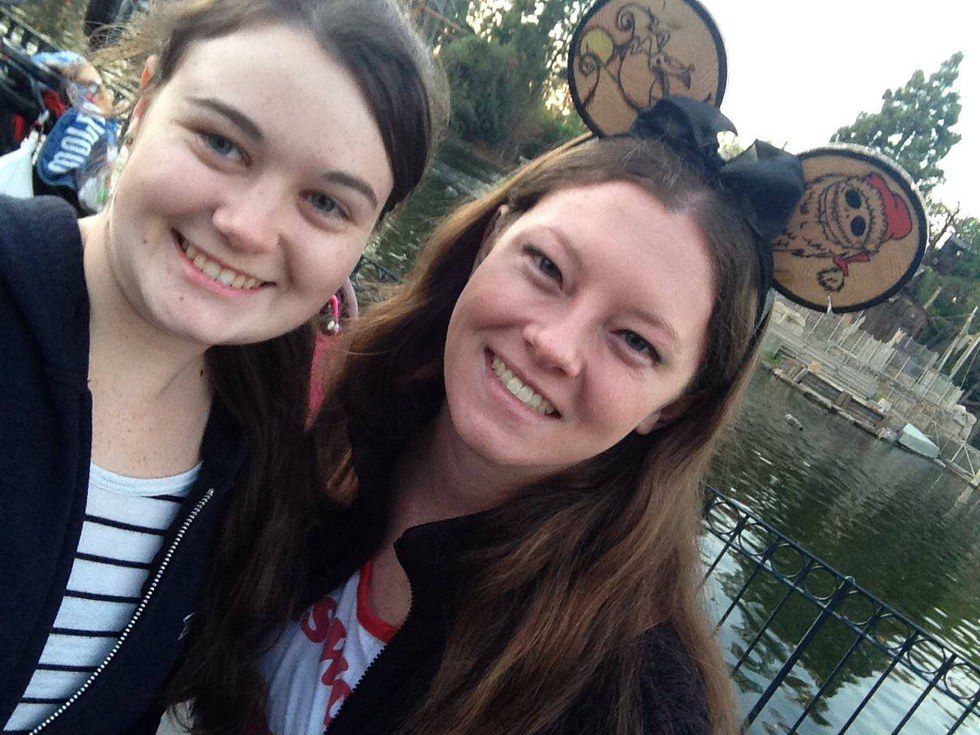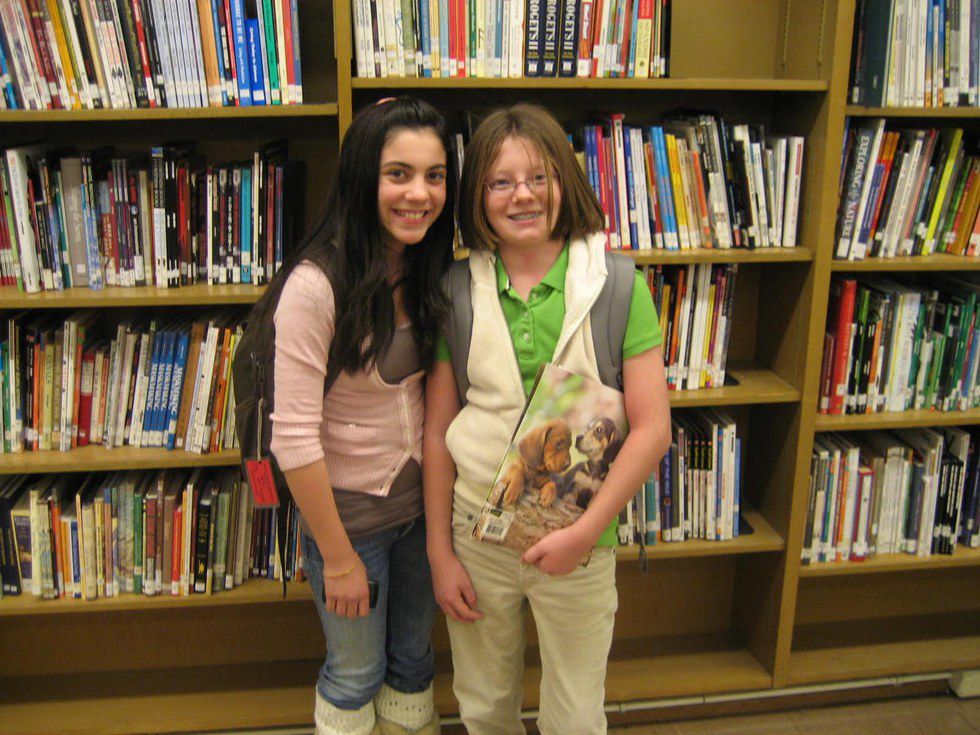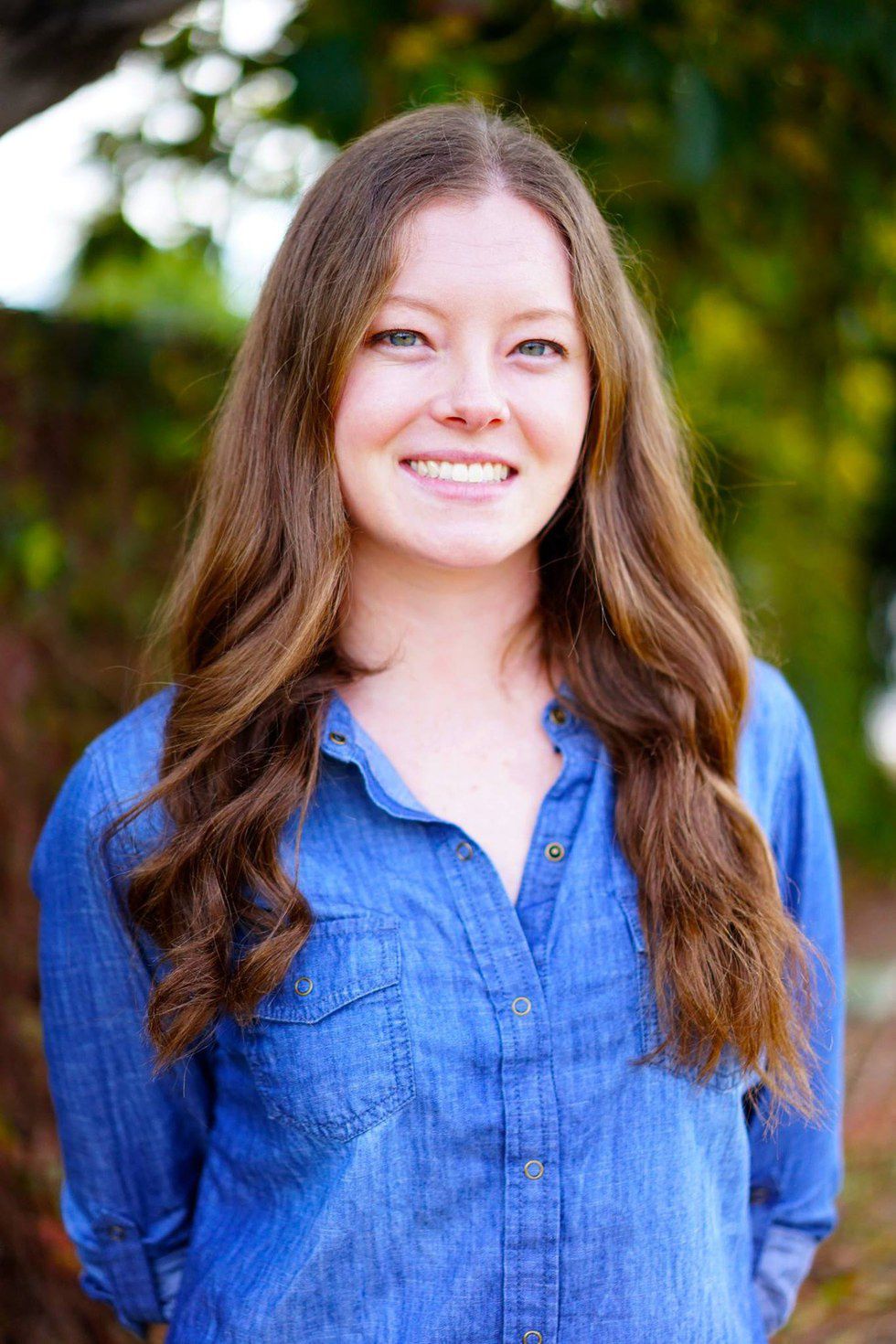I remember watching Drake and Josh almost every day after school. Drake Bell and Josh Peck's ridiculous humor entertained me for hours on end. Though I loved these "boobs", I loved Miranda Cosgrove even more. Her hilarious tricks on her brothers cracked me up, even though looking back they were pretty silly.
Altogether, Drake and Josh introduced me to the power of acting, and at the age of six, I knew this was what I wanted to do. I wanted to entertain people as Drake, Josh, and Megan had entertained me. My mother worked in the entertainment industry for over fifteen years. With careers at Hanna-Barbera and Universal, she knew her way around the industry. Like mother like daughter, she became ecstatic after I expressed my interest in her field.
Unlike the rest of my peers, my after school activity didn't take place after school. It took place on Saturday mornings at Kids on Camera in SF, where I studied acting for television, voice over, and improv/cold script reading. As fun as these classes were, I sometimes felt I was different than my fellow actors. Most of them felt that Kids on Camera was a place for them to just goof off and make friends. And I think the instructors took this into consideration, because sometimes we would just be playing silly games that didn't really help us perfect our craft.
Although I did learn a bit about acting, I grew irritated that we were treated like kids. Yes, we were kids, but I wanted to be treated like a regular actor. I think this is what made me stand out from the rest of my fellow thespians.
After excelling in all of these classes, my fellow classmate Elliot and I were ranked best in our class. Being given this title by our instructors meant they believed we would be successful in our careers.
Once I gathered a collection of head shots, I began booking various auditions. Located off of Mission and 1st Streets, Beau Bonneau Casting became a familiar face as I attended 99% of my auditions there. A tiny white door crammed between a Mexican and an Italian restaurants, this casting office can be easily missed.
Up those creaky, wood-rotten stairs, I sat in a grungy room, audition after audition, with children who were just as hopeful as me to get discovered. Whenever my name was called, every casting agent would remark how I looked just like young Jodie Foster. This comparison was made so often that I usually finished their sentence before they could do so themselves.
The majority of auditions at Beau Bonneau did not end as well as I hoped. Facing a lot of rejection at a young age was difficult. But I knew that I wanted to be just like Miranda, so I kept going back to that hidden door, wishing that at this audition, I'd get my break.
And eventually I did.
I booked a short film called Indivisible. And from there I booked A Man Who Hugged and Kissed. And from there I ended up receiving my agent Sherrie, who helped me book twelve episodes of the popular Japanese television show Sekai Gyoten News (aka The World's Astonishing News!). She also helped me book films such as Raspberry Magic, My Name is Khan, and Contagion. Thanks to Sherrie, I also picked up a bit of modeling work as well for Mervyn's and Levi's.
So you know my rise to "fame." You know that I've spent the majority of my life in front of a camera (more or less). But the following is what you don't know about my career. Amid the glitz and the glitter, this is what it was really like growing up as a child actress.
I missed a handful of classes because of auditions or actually shooting. Because of these absences, I had to figure out a way to stay on top of my school work. I spent several lunch breaks in the library or in the bathroom getting ahead on my homework or preparing for a test. My friends didn't understand why I cared so much about my grades. Since I wanted to be an actor, they told me that grades didn't matter.
And yes, in the industry, you don't have to be a 4.0 student to succeed. But for me, if I wanted to continue my job at a young age, I had to get the best grades possible, or my parents would cut my career short. So I pushed my teachers to let me submit assignments early or take tests way before the actual test date. Even though this sometimes was an inconvenience to their schedule, my passion for acting was able to sway them.
My career not only impacted my schedule, but that of my entire family. For the most part, my mom was the one stopped everything to take me to an audition or set. She'd cancel her plans at the drop of a hat to let me pursue my dream. If she couldn't take me to work, my dad would step up. His job was the main source of income for our family, and I always felt bad when he had to call the office and tell them he was "sick." But for him, he didn't care. He would give me the world if he could.
I made a lot of friends on set. And it was always exciting when I saw them again on another projects. Some of my best childhood memories come from working on set with my new friends. I'll never forget exploring an old middle school and finding rotten food with my friend Maddie. I'll always remember how a group of us called one of the producers on Raspberry Magic "Snowy Mountain" because of his pointy, white hair. And I'll look back fondly on how my friend Darcy and I poked around the set of Contagion in hopes of running into Matt Damon.
Darcy and I, reuniting several years later
But with the good kids come the bad kids. I met some of the nastiest children throughout my twelve years of acting. Half of these kids were forced into the entertainment industry by their parents, and the other half were the most entitled piece of shits.
These kids would treat crew members with so much disrespect. Some would demand the key crew to bring them snacks or a blanket. Others would yell at the crew for getting in their way. At one time, I remember actress Bella Thorne (before her rise on Shake it Up) yelling at the studio teacher for not explaining something properly. Her attitude shook the entire holding room, and made me question why people would cast such rude actors.
With the kids came the parents - the stage moms and dads. They'd always suck up to the directors just a little too much, hoping that they'd give their child a line or extra time on camera. But from my observation, their actions always backfired. The more annoying the children/parents, the less they'd be on set.
After a long day or two on set, I'd say goodbye to my new friends. Some of my friends have gone onto projects such as Four Christmases, The Lego Movie, Bojack Horseman, and Super 8. I often wonder where they all are today, and I wish I was in contact with more of them.But as each project came to an end, I'd say my goodbyes, only hoping to see them on the next set. And like that, the director yelled "cut" and I'd have to go back to reality and be a normal student once again.
It's funny. I sat in class often thinking about my career, wondering what it would be like to be someone who didn't do this. To be, I guess, normal. For the most part, I was a normal student since I wasn't a child STAR. But in reality, my life was just a little different than the rest of my peers'. I liked it this way.
Whenever I came back to school from being on set, I received a lot of attention. Honestly, I relished in those five seconds of fame. I wasn't popular in school, so when I received that attention, I finally felt cool. But this "fame" wasn't always good.
I think one of my biggest moments of fame was when I booked Raspberry Magic. I shared the good news one of my friends on a cold, early morning before class. By lunch, the entire school new. As I walked the halls, people came up to me left and right and treated me like royalty. Kids, either in my grade or those above/below me wanted to be my friend. Being one smart cookie, I was able to identify who actually wanted to be my friend and who just wanted to be friends with a "famous" person.
And sometimes that fame attracted unsupportive folks as well. Several students gave me nasty stares or grew jealous of me. Rumors spread around that I talked too much about my career and bragged about my life in front of the camera. This was sad to hear, because I only talked about my acting career when asked to do so. No matter how much these rumors or those fake friends bothered me, I always remained humble and never bragged about how I was "better than everyone else."
So yes, the long drives and the emotional breakdowns, the disgusting rumors and the fake fans, and the moments of rejection and stress were not experiences many children had growing up. But as I reminisce on my time in the spotlight, I wish I could do it all over again. I absolutely love the friends and the memories I made. I miss those late nights, hanging out with the crew members who, especially on Sekai Gyoten News became my second family. I would never have grown up any other way, and absolutely loved every second of it.
I write this article to inform people of the hard work that went into my career. It wasn't as easy as I made it seem, and child actors deserve more credit.
Today I still act every now and then, but not much. If I get the chance to act (or even model) I'm still just as excited as I was back then.




